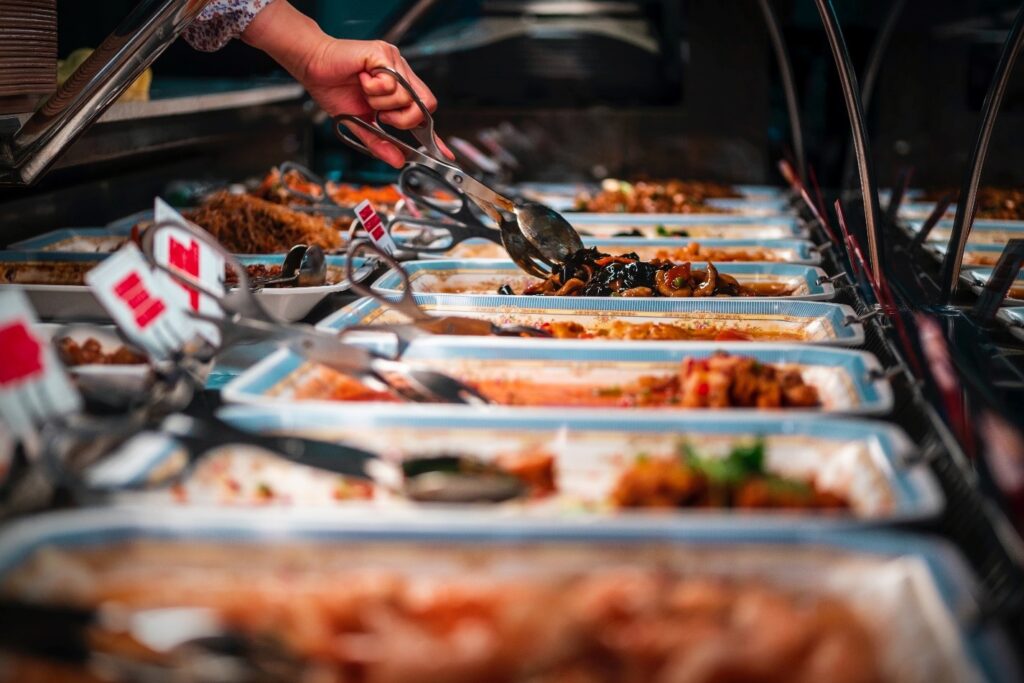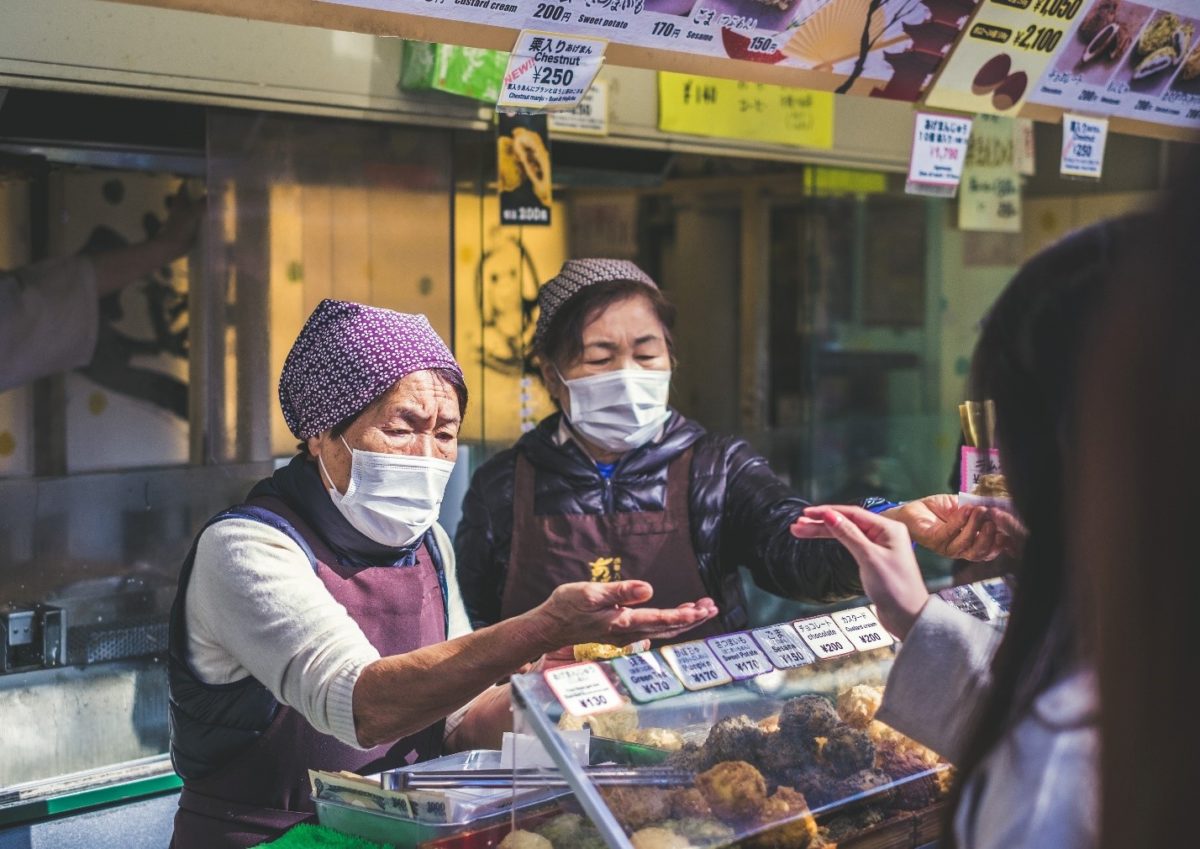Just a few months ago, there wasn’t much thought given to grabbing a food sample at the supermarket, going for seconds at a buffet or making a cup of coffee at the office. You might not have considered how many people touched the sample tray, buffet utensils or coffee maker before you. But COVID-19 has changed that.
Businesses are taking extreme sanitation and social distance precautions to reopen without a cure or vaccine. Because of that, some everyday cherished aspects of society may be excluded as they pose health risks. Aside from physical contact like handshakes, hugs and cheek-kiss greetings, many food and dining practices may not resume once the pandemic subsides.
Related: CDC Issues Guidelines for Reopening Restaurant Dining Rooms
Office snacks, coffee machines and corporate pantries may be ditched as offices begin to reopen. The seemingly harmless office Nespresso machine is now a health hazard with coworkers pressing the same buttons and drifting by the machine breathing potentially harmful germs onto the surface. Falling into the same bucket are those cherished shared pantries, breakrooms and lunch meetings.
Some public health officials have warned people not to share food during during social gathering due to the ongoing pandemic, but does that mean brunch buffets, self-serve and restaurant salad bars could become a thing of the past? Unfortunately, cafeterias and other self-serve style dining options may go extinct (for now), as the Centers for Disease Control and Prevention (CDC) recommended that restaurants reopening avoid all self-serve stations.
Communal food is coming under scrutiny as coronavirus continues to spread. Sampling, the highlight of any kid’s Costco trip, will become but a memory as germs can spread from shared platters. Costco has suspended product demonstrations indefinitely at some of its stores around the world, including in the US and China.
While it’s an unfortunate turn for climate change activists, reusable cups and bags may also be a thing of the past, as coffee chains like Starbucks and Dunkin Donuts will no longer fill reusable mugs. Local governments in cities like San Francisco and San Mateo, along with grocery giants Whole Foods and Trader Joe’s, have banned reusable bags.
As national retailers and local markets discontinue these self-serve stations in accordance with CDC guidances, people will need to look for places other than the grocery store hot bars and soup, salad and pizza stations for easy dinners. Food companies are capable of profound change if they have the will, but if they don’t adapt, they may not succeed long term.







Join or login to leave a comment
JOIN LOGIN